
"Two impressive features of this book are its clarity of purpose and the breadth of disciplinary resources to which it appeals."
---Geoffrey Brennan, Professor of Economics, Australian National University
"Facing massive evidence that people do not act generally as self-regarding payoff maximizers, economists have become increasingly interested in issues of cooperation, altruism, identity, and morality. Lanse Minkler's contribution is particularly important because of his powerful argument that the evidence of cooperation cannot be explained adequately by a more complicated preference function. A disposition for honesty is not simply a matter of preference---it is an issue of personal integrity, identity, and commitment. This has major implications. In particular we have to reconstruct the theory of the firm from first principles. No economist committed to the pursuit of truth should ignore this volume."
---Geoffrey Hodgson, Research Professor in Business Studies, University of Hertfordshire, United Kingdom, and Editor in Chief of the Journal of Institutional Economics
"This is an interesting account of the role of integrity---preference-integrity and commitment-integrity---on economic behavior. While drawing knowledge from traditional subfields of economics, it also includes insights gleaned from psychology and philosophy, showing their effects in varied areas such as political behavior, the employment relation, religion, and human rights. In this exciting volume Lanse Minkler does an excellent job of incorporating various newer concepts of fairness and integrity into economic analysis."
---Ernst Fehr, Professor and Head of the Chair of Microeconomics and Experimental Economic Research and Director of the Institute for Empirical Research in Economics, University of Zurich
Social scientists who treat humans as rational beings driven exclusively by self-interest ignore a key factor shaping human behavior: the influence of moral principles. Starting with the elementary principle "lying is wrong," economic theorist Lanse Minkler examines the ways in which a sense of morality guides real-life decision making.
Whether one feels committed to specific or general moral principles, Minkler explains, integrity demands consistently acting on that commitment. Because truthfulness is the most basic moral principle, integrity means honesty. And honesty extends beyond truth-telling. It requires good faith when entering an agreement and then standing by one's word. From this premise, Minkler explores the implications of integrity for contracts between buyers and sellers and understandings between employers and employees. He also finds a role for integrity in an individual's religious vows, an elected official's accountability to constituents, and a community's obligation to human rights.
Integrity and Agreement reintroduces morality as a factor for economists, sociologists, psychologists, and political scientists to consider in their efforts to comprehend human behavior.
Lanse Minkler is Associate Professor of Economics at the University of Connecticut.

The twelve essays in this stimulating volume, written by health care professionals and others working with the important issue of institutional ethics, focus on the world of academic health centers and provide rich, informed commentaries on significant problems integral to the character and work of those centers. Daniel Steiner demonstrates how the viability of independent research may be threatened by university liaisons with industry. Donald Frederickson traces the history of the National Institutes of Health response to the ethical challenges in clinical investigation and fetal research. Edmund Pellegrino recommends ways in which health-related institutions may translate their concern into action. Robert Coles examines the tensions between institutional and personal values in a very provocative way. Other directions are explored by essayists Roger Bulger, Stephen Toulmin, H. Tristram Engelhardt, Kim Dunn, Mitchell Rabkin, James Haughton, Lawrence Green, and the editors themselves.
Every essay in this wide-ranging collection reveals the implications and effects of institutional values. The end result is a clear picture of conflicts of values: ethical, social, economic, ethnic, cultural, and pedagogic. Integrity in Health Care Institutions points out the need for a deliberate attempt to sort out the values of institutions and, when they are fully and clearly displayed, to use priorities as a guide to satisfying the obligations of academic health centers to those who work within their walls; to the patients, students, scientists, and teachers they serve; and to society in general.
Physicians and nurses, hospital and university administrators, attorneys, sociologists, and everyone concerned about the moral interaction between institutions and individuals will want to read this book.
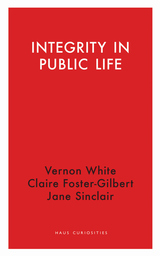

Geneticists and biochemists, particularly, have realized the special potentialities of antibodies as biologically labeled proteins that help to throw light on the process whereby genetic information carried in the chromosomes is eventually manifested in the synthesis of the proteins needed for the functioning of the organism. There are in addition many specialized applications of immunology in the other biological sciences.
F. M. Burnet describes with characteristic vividness the kinds of problems with which immunology is concerned today and the methods by which it seeks answers to them. Although he gives particular emphasis to the clonal-selection theory of immunity, of which he is the originator, he frankly says that “because it is so inherently simple, it is probably wrong.” He explains other theories of immunity as well. He discusses both nonmedical and medical applications of immunology and devotes several chapters to allergic disease and autoimmune disease. He concludes with some personal speculations into the deeper problems of biology—for instance, a somatic mutation theory of aging, in which immunology may be expected eventually to be of service.
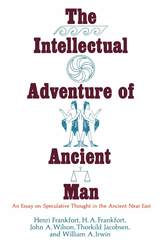
The authors describe and analyze the spiritual life of three ancient civilizations: the Egyptians, whose thinking was profoundly influenced by the daily rebirth of the sun and the annual rebirth of the Nile; the Mesopotamians, who believed the stars, moon, and stones were all citizens of a cosmic state; and the Hebrews, who transcended prevailing mythopoeic thought with their cosmogony of the will of God. In the concluding chapter the Frankforts show that the Greeks, with their intellectual courage, were the first culture to discover a realm of speculative thought in which myth was overcome.


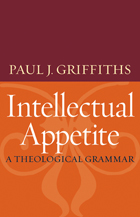
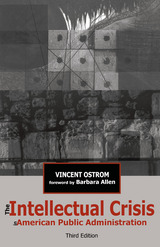
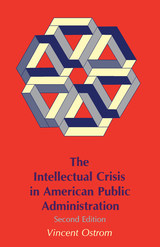
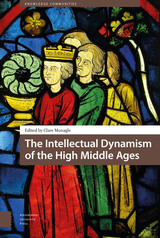
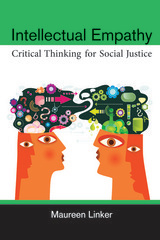
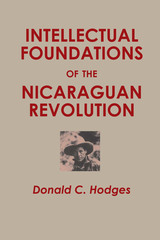
In this critical study of the thought of Augusto Cesar Sandino and his followers, Donald C. Hodges has discovered a coherent ideological thread and political program, which he succeeds in tracing to Mexican and Spanish sources. Sandino's strong religious inclination in combination with his anarchosyndicalist political ideology established him as a religious seer and moral reformer as well as a political thinker and is the prototype of the curious blend of Marxism and Christianity of the late twentieth-century Nicaraguan government, the Frente Sandinista de Liberación Nacional.

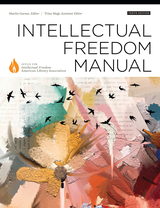
The newest edition of the Intellectual Freedom Manual is more than simply an update of a foundational text that has served as a crucial resource for more than four decades. It is a living document that serves as the authoritative reference for day-to-day guidance on maintaining free and equal access to information for all people. Whether you’re developing or revising policies, on-boarding new staff or trustees, responding to challenges and controversies, or studying librarianship, you’ll find this an indispensable resource, with features such as
- ALA policy statements, approved by committees and Council, articulating core intellectual freedom principles and best practices;
- 8 new interpretations of the Library Bill of Rights, which address urgent issues like internet filtering, public performances, political activity, religion, and equity, diversity, and inclusion;
- “Issues at a Glance” sidebars which present key concepts, points of law, tips, and questions for reflection;
- expanded content about developing library policies that support intellectual freedom;
- updated information on censorship of library programs, displays, and databases;
- “Advocacy and Assistance,” a section offering concrete guidance when you’re called on to talk to the media or meet with legislators;
- Deeper Look essays which examine the laws related to library operations;
- advice on when to call the police, when not to, and how to handle personally identifiable information when they arrive; and
- an expanded glossary.



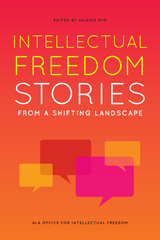
Intellectual freedom is a complex concept that democracies and free societies around the world define in different ways but always strive to uphold. And ALA has long recognized the crucial role that libraries play in protecting this right. But what does it mean in practice? How do library workers handle the ethical conundrums that often accompany the commitment to defending it? Rather than merely laying out abstract policies and best practices, this important new collection gathers real-world stories of intellectual freedom in action to illuminate the difficulties, triumphs, and occasional setbacks of advocating for free and equal access to information for all people in a shifting landscape. Offering insight to LIS students and current practitioners on how we can advance the profession of librarianship while fighting censorship and other challenges, these personal narratives explore such formidable situations as
- presenting drag queen story times in rural America;
- a Black Lives Matter “die-in” at the undergraduate library of the University of Wisconsin-Madison;
- combating censorship at a prison library;
- hosting a moderated talk about threats to modern democracy that included a neo-Nazi spokesman;
- a provocative exhibition that triggered intimidating phone calls, emails, and a threat to burn down an art library;
- calls to eliminate non-Indigenous children’s literature from the collection of a tribal college library; and
- preserving patrons’ right to privacy in the face of an FBI subpoena.
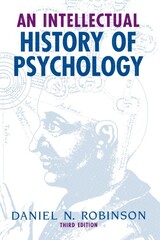
An Intellectual History of Psychology, already a classic in its field, is now available in a concise new third edition. It presents psychological ideas as part of a greater web of thinking throughout history about the essentials of human nature, interwoven with ideas from philosophy, science, religion, art, literature, and politics.
Daniel N. Robinson demonstrates that from the dawn of rigorous and self-critical inquiry in ancient Greece, reflections about human nature have been inextricably linked to the cultures from which they arose, and each definable historical age has added its own character and tone to this long tradition. An Intellectual History of Psychology not only explores the most significant ideas about human nature from ancient to modern times, but also examines the broader social and scientific contexts in which these concepts were articulated and defended. Robinson treats each epoch, whether ancient Greece or Renaissance Florence or Enlightenment France, in its own terms, revealing the problems that dominated the age and engaged the energies of leading thinkers.
Robinson also explores the abiding tension between humanistic and scientific perspectives, assessing the most convincing positions on each side of the debate. Invaluable as a text for students and as a stimulating and insightful overview for scholars and practicing psychologists, this volume can be read either as a history of psychology in both its philosophical and aspiring scientific periods or as a concise history of Western philosophy’s concepts of human nature.
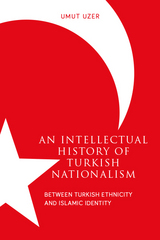
While predominantly a textual analysis of the primary sources written by the nationalists, this volume takes into account how political developments influenced Turkish nationalism and also tackles the question of how an ideology that began as a revolutionary, progressive, forward-looking ideal eventually transformed into one that is conservative, patriarchal, and nostalgic to the Ottoman and Islamic past. Between Islamic and Turkish Identity is the first book in any language to comprehensively analyze Turkish nationalism with such scope and engagement with primary sources; it aims to dissect the phenomenon in all its manifestations.
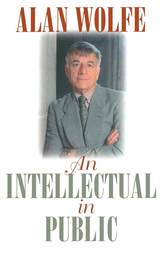
"The question of the public intellectual is very much in the air again," writes Alan Wolfe. As one of our eminent social commentators, Wolfe should know; he's been writing, with fierce intellectual independence, about American public and private life since the 1960s.
In this new collection of essays spanning seven years of contributions to The New Republic, The New Yorker, Atlantic Monthly, and other prominent publications, Wolfe displays the courage necessary to write honestly—yet free of ideology, cant, and piety—about the things Americans take very seriously.
Wolfe thinks big; indeed, the essays in An Intellectual in Public confront many of the most controversial issues of our time: country, God, race, sex, material consumption, and left and right. Beginning and ending the book are original essays describing the public intellectual's role, and how Wolfe believes that role ought to be filled.
An Intellectual in Public is not only a demonstration of Wolfe's pointed analytical skills but a testament to his belief that "severely ideological thinking" is inappropriate for some of our most difficult problems, and that "neither the right nor the left can speak for all of America."
Alan Wolfe is the director of the Boisi Center for Religion and American Public Life and also Professor of Political Science at Boston College. He is the author of over a dozen books, including One Nation After All: What Middle Class Americans Really Think About: God, Country, Family, Racism, Welfare, Immigration, Homosexuality, Work, the Right, the Left and Each Other.
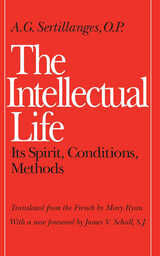
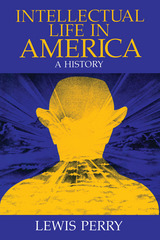
Looking at the changing reputation of the intellect itself, Perry examines many forms of anti-intellectualism, showing that some of these were encouraged by intellectuals as surely as by their antagonists. This work is interpretative, critical, and highly provocative, and it provides what is all too often missing in the study of intellectuals—a sense of historical orientation.

David Bromwich’s portrait of statesman Edmund Burke (1730–1797) is the first biography to attend to the complexity of Burke’s thought as it emerges in both the major writings and private correspondence. The public and private writings cannot be easily dissociated, nor should they be. For Burke—a thinker, writer, and politician—the principles of politics were merely those of morality enlarged. Bromwich reads Burke’s career as an imperfect attempt to organize an honorable life in the dense medium he knew politics to be.
This intellectual biography examines the first three decades of Burke’s professional life. His protest against the cruelties of English society and his criticism of all unchecked power laid the groundwork for his later attacks on abuses of government in India, Ireland, and France. Bromwich allows us to see the youthful skeptic, wary of a social contract based on “nature”; the theorist of love and fear in relation to “the sublime and beautiful”; the advocate of civil liberty, even in the face of civil disorder; the architect of economic reform; and the agitator for peace with America. However multiple and various Burke’s campaigns, a single-mindedness of commitment always drove him.
Burke is commonly seen as the father of modern conservatism. Bromwich reveals the matter to be far more subtle and interesting. Burke was a defender of the rights of disfranchised minorities and an opponent of militarism. His politics diverge from those of any modern party, but all parties would be wiser for acquaintance with his writing and thoughts.
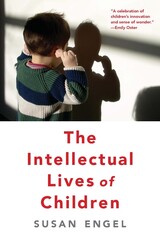
“A remarkable book. Whether you are an educator, parent, or simply a curious reader, you will come to see, hear, and understand children in new ways.”
—Howard Gardner, author of Multiple Intelligences
Adults easily recognize children’s imagination at work as they play. Yet most of us know little about what really goes on inside their heads as they encounter the problems and complexities of the world around them. Susan Engel brings together an extraordinary body of research to explain how toddlers, preschoolers, and elementary-aged children think.
A young girl’s bug collection reveals how children ask questions and organize information. Watching a boy scoop mud illuminates the process of invention. When a child ponders the mystery of death, we witness how ideas are built. But adults shouldn’t just stand around watching. When parents are creative, it can rub off. Engel shows how parents and teachers can stimulate children’s curiosity by presenting them with mysteries to solve, feeding their sense of mastery and nourishing their natural hunger to learn.
“A fascinating read for parents who wonder, simply, what is my child thinking? Why do they love collecting? Where did that idea come from? A celebration of children’s innovation and sense of wonder.”
—Emily Oster, author of Expecting Better
“Combining insight, scientific acumen, and exquisite narrative, The Intellectual Lives of Children allows readers to peer into the minds of infants, toddlers, and preschoolers as they explore and learn in everyday moments, emphasizing what constitutes real learning.”
—Kathy Hirsh-Pasek, Science
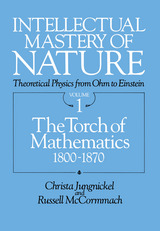
Volume 1 opens with an account of physics in Germany at the beginning of the nineteenth century and of German physicists' reception of foreign mathematical and experimental work. Jungnickel and McCormmach follow G. S. Ohm, Wilhelm Weber, Franz Neumann, and others as these scientists work out the new possibilities for physics, introduce student laboratories and instruction in mathematical physics, organize societies and journals, and establish and advance major theories of classical physics. Before the end of the nineteenth century, German physics and its offspring, theoretical physics, had acquired nearly their present organizational forms. The foundations of the classical picture of the physical world had been securely laid, preparing the way for the developments that are the subject of volume 2.
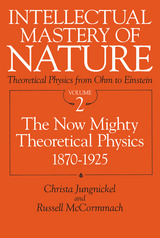
"A majestic study of a most important spoch of intellectual
history."—Brian Pippard, Times Literary Supplement
"The authors' use of archival sources hitherto almost
untouched gives their story a startling vividness. These volumes
are among the finest works produced by historians of physics."—Jed
Z. Buchwald, Isis
"The authors painstakingly reconstruct the minutiae of
laboratory budgets, instrument collections, and student numbers;
they disentangle the intrigues of faculty appointments and the
professional values those appointments reflected; they explore
collegial relationships among physicists; and they document the
unending campaign of scientists to wring further support for
physics from often reluctant ministries."—R. Steven Turner, Science
"Superbly written and exhaustively researched."—Peter Harman,
Nature



Creating a platform for further theoretical discussion about the ongoing struggle to bring about a new social system, the contributors grapple with the internal crisis or disorientation of the Chinese intellectual world as a distorted, but telling picture of the complexity of contemporary Chinese economics, politics, society, and culture. Essays offer a critical examination of the current state of Chinese intellectual discourse; a challenge to mainstream liberalism in China today and its commitment to democracy; a summary of reconsiderations of property rights, economic democracy, political participation, and the meaning of socialism in the age of flexible production; a reflection on the handover of Hong Kong in the context of a general discussion of Western colonialism in China; and an analysis of the rise of consumer nationalism and mass culture in China since the early 1990s. Intellectual Politics in Post-Tiananmen China sheds light on the evasive nature of Chinese society, and the contributors engage the Chinese problematic not only as a crisis but also as an ongoing historical dynamic.
Contributors. Rey Chow, Zhiyuan Cui, Wang Hui, Gan Yang, Xudong Zhang
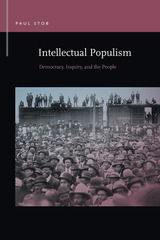
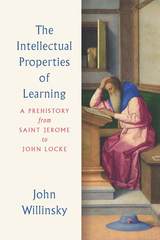
Willinsky begins with Saint Jerome in the fifth century, then traces the evolution of reading, writing, and editing practices in monasteries, schools, universities, and among independent scholars through the medieval period and into the Renaissance. He delves into the influx of Islamic learning and the rediscovery of classical texts, the dissolution of the monasteries, and the founding of the Bodleian Library before finally arriving at John Locke, whose influential lobbying helped bring about the first copyright law, the Statute of Anne of 1710. Willinsky’s bravura tour through this history shows that learning gave rise to our idea of intellectual property while remaining distinct from, if not wholly uncompromised by, the commercial economy that this concept inspired, making it clear that today’s push for marketable intellectual property threatens the very nature of the quest for learning on which it rests.

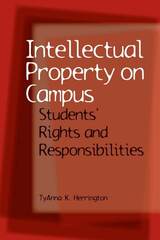
What issues arise when students’ uses of intellectual materials are legally challenged, and how does the academic context affect them? What happens when users of intellectual property, either within or outside the academic structure, violate students’ rights to their intellectual products? In Intellectual Property on Campus, TyAnna K. Herrington addresses these concerns and more, clearing up the confusion often surrounding intellectual property law and its application in an academic setting. Filled with practical information and simple yet thorough explanations, this enlightening volume provides educators and students with a solid basis for understanding the broader impacts of legal and ethical dilemmas involving intellectual materials.
Herrington provides insight for students into how complex concepts such as patent, trademark, copyright, fair use, and plagiarism affect their work. She outlines the potential effects of the choices students make, as well as the benefits and limitations of legal protection for intellectual property, including the thorny issues of authorship and authority under the 1976 Copyright Act. Herrington also explores the topic of student collaboration—now very common on college campuses—and how it affects intellectual property issues and legal relationships, as well as the impact of new technologies, such as blogs, on student work in educational environments.
Intellectual Property on Campus also provides useful information for administrators and educators. In particular, Herrington investigates the possible ramifications of their pedagogical and policy choices, and examines in depth the responsibility of instructors to treat students’ intellectual property legally, ethically, and conscientiously. Cautioning educators about the limitations on their control over intellectual materials in an academic setting, Herrington encourages teachers to minimize their influence over student works, instead giving pupils more freedom to control their own creations.
The volume also investigates the rights, responsibilities, and limitations for users of intellectual property, as opposed to creators, especially as related to student or instructor use of copyrighted materials. Discussed in detail are such issues as fair use and the TEACH Act, as well as the often-intertwined areas of plagiarism, authorship, and copyright. In addition, Herrington addresses recent cultural developments regarding the use and creation of intellectual property by students and instructors.
Written in a jargon-free style that is easy to understand, Intellectual Property on Campus gives students, instructors, and administrators the information they need to navigate the intricate landscape of law and integrity in the realm of academic creation.

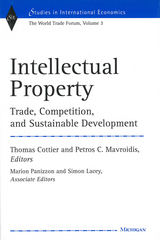
Largely a victory for OECD countries, the present state of intellectual property rights has important implications for developing countries. The incorporation of intellectual property rights into the WTO system will eventually change the relationship of trade, competition, and intellectual property. It will equally have to assist in providing equitable sharing of benefits in the use of plant genetic resources. All of these issues are essential for the revision of exclusions from patenting in TRIPs. This volume offers insights into how this difficult task could and should be approached in a balanced manner and will be essential reading for economists and trade and intellectual property lawyers interested in the subject. Moreover, the volume will be relevant to agricultural economists as it addresses complex problems in the interstices of trade, intellectual property, plant genetic resources, and sustainable development.
Thomas Cottier is Professor of European and International Economic Law, University of Bern, and Managing Director, World Trade Institute, University of Bern.
Petros C. Mavroidis is Professor of Law, University of Neuchâtel. He formerly worked in the Legal Affairs Division of the World Trade Organization.
Marion Panizzon is Research Fellow, University of Bern.
Simon Lacey is Research Fellow, University of Bern.
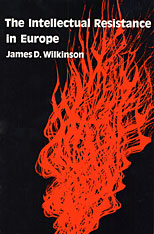
Camus, Sartre, and Beauvoir in France. Eich, Richter, and Böll in Germany. Pavese, Levi, and Silone in Italy. These are among the defenders of human dignity whose lives and work are explored in this widely encompassing work. James D. Wilkinson examines for the first time the cultural impact of the anti-Fascist literary movements in Europe and the search of intellectuals for renewal—for social change through moral endeavor—during World War II and its immediate aftermath.
It was a period of hope, Wilkinson asserts, and not of despair as is so frequently assumed. Out of the shattering experience of war evolved the bracing experience of resistance and a reaffirmation of faith in reason. Wilkinson discovers a spiritual revolution taking place during these years of engagement and views the participants, the engagés, as heirs of the Enlightenment. Drawing on a wide range of published writing as well as interviews with many intellectuals who were active during the 1940s, Wilkinson explains in the fullest context ever attempted their shared opposition to tyranny during the war and their commitment to individual freedom and social justice afterward.
Wilkinson has written a cultural history for our time. His wise and subtle understanding of the long-range significance of the engages is a reminder that the reassertion of humanist values is as important as political activism by intellectuals.
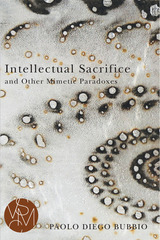
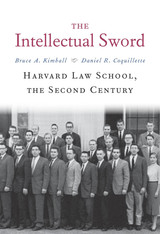
A history of Harvard Law School in the twentieth century, focusing on the school’s precipitous decline prior to 1945 and its dramatic postwar resurgence amid national crises and internal discord.
By the late nineteenth century, Harvard Law School had transformed legal education and become the preeminent professional school in the nation. But in the early 1900s, HLS came to the brink of financial failure and lagged its peers in scholarly innovation. It also honed an aggressive intellectual culture famously described by Learned Hand: “In the universe of truth, they lived by the sword. They asked no quarter of absolutes, and they gave none.” After World War II, however, HLS roared back. In this magisterial study, Bruce Kimball and Daniel Coquillette chronicle the school’s near collapse and dramatic resurgence across the twentieth century.
The school’s struggles resulted in part from a debilitating cycle of tuition dependence, which deepened through the 1940s, as well as the suicides of two deans and the dalliance of another with the Nazi regime. HLS stubbornly resisted the admission of women, Jews, and African Americans, and fell behind the trend toward legal realism. But in the postwar years, under Dean Erwin Griswold, the school’s resurgence began, and Harvard Law would produce such major political and legal figures as Chief Justice John Roberts, Justice Elena Kagan, and President Barack Obama. Even so, the school faced severe crises arising from the civil rights movement, the Vietnam War, Critical Legal Studies, and its failure to enroll and retain people of color and women, including Justice Ruth Bader Ginsburg.
Based on hitherto unavailable sources—including oral histories, personal letters, diaries, and financial records—The Intellectual Sword paints a compelling portrait of the law school widely considered the most influential in the world.

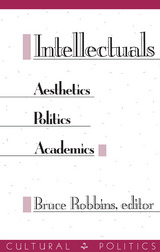

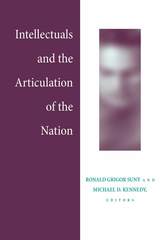
One of the principal debates in the study of nations concerns the relative significance of elites, specifically intellectuals, in inventing the nation. Intellectuals and the Articulation of the Nation delimits the capacities of intellectuals for shaping nations, as well as the ways in which the development of nations shapes intellectual practices. The introductory chapter presents the principal debates around nation-making and the identity and practices of intellectuals. Contributors from anthropology, history, literature, political science and sociology then explore the capacities and limits of intellectuals in the formation and restructuring of national identities in general, and in Eastern Europe and the former Soviet Union in particular.
Each essay is followed by a brief intellectual autobiography in which the author's own relationship to nations is explored. The editors conclude the volume by developing a general theory of national intellectual practice.
The principal focus of this book--the mutual articulation of intellectuals and nations--is a key subject for students and scholars of history, cultural studies, political science, anthropology, and sociology.
Ronald Grigor Suny is Professor of Political Science, University of Chicago. Michael D. Kennedy is Associate Professor of Sociology, University of Michigan.
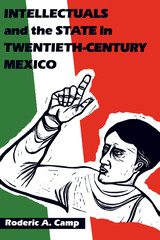
In developing countries, the extent to which intellectuals disengage themselves in state activities has widespread consequences for the social, political, and economic development of those societies. Roderic Camps’ examination of intellectuals in Mexico is the first study of a Latin American country to detail the structure of intellectual life, rather than merely considering intellectual ideas. Camp has used original sources, including extensive interviews, to provide new data about the evolution of leading Mexican intellectuals and their relationship to politics and politicians since 1920.

Intellectuals, Socialism, and Dissent was first published in 1995. Minnesota Archive Editions uses digital technology to make long-unavailable books once again accessible, and are published unaltered from the original University of Minnesota Press editions.
Once the Berlin Wall fell in 1989, the people of East Germany had little use for the dissident intellectuals who had helped bring it down. Intellectuals, Socialism, and Dissent offers a penetrating look into the circumstances of this fall from grace, unique among the former Communist states.
John Torpey traces the dissident intellectuals' fate to the peculiar situation of the East German regime, which sought to build "socialism in a quarter of a country" on the anti-fascist foundations of Communist opposition to Nazism. He shows how the regime's unusual history and subnational status helped sustain the East German intelligentsia's conviction that socialism could be reformed and humane-that there was a "third way" between Soviet-style socialism and the capitalism that took root in West Germany. How the pursuit of this third way both supported and undermined the regime, and both galvanized and alienated the East German people, becomes clear in Torpey's nuanced analysis. His book makes a powerful contribution to our understanding of the politics of intellectuals during one of the most painful chapters in modern German history.
John C. Torpey is currently a Jean Monnet Fellow at the European University Institute in Florence.

How can the United States avoid a future surprise attack on the scale of 9/11 or Pearl Harbor, in an era when such devastating attacks can come not only from nation states, but also from terrorist groups or cyber enemies?
Intelligence and Surprise Attack examines why surprise attacks often succeed even though, in most cases, warnings had been available beforehand. Erik J. Dahl challenges the conventional wisdom about intelligence failure, which holds that attacks succeed because important warnings get lost amid noise or because intelligence officials lack the imagination and collaboration to “connect the dots” of available information. Comparing cases of intelligence failure with intelligence success, Dahl finds that the key to success is not more imagination or better analysis, but better acquisition of precise, tactical-level intelligence combined with the presence of decision makers who are willing to listen to and act on the warnings they receive from their intelligence staff.
The book offers a new understanding of classic cases of conventional and terrorist attacks such as Pearl Harbor, the Battle of Midway, and the bombings of US embassies in Kenya and Tanzania. The book also presents a comprehensive analysis of the intelligence picture before the 9/11 attacks, making use of new information available since the publication of the 9/11 Commission Report and challenging some of that report’s findings.
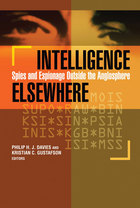
Spying, the “world’s second oldest profession,” is hardly limited to the traditional great power countries. Intelligence Elsewhere, nevertheless, is the first scholarly volume to deal exclusively with the comparative study of national intelligence outside of the anglosphere and European mainstream. Past studies of intelligence and counterintelligence have tended to focus on countries such as the United States, Great Britain, and Russia, as well as, to a lesser extent, Canada, Australia, France, and Germany. This volume examines the deep historical and cultural origins of intelligence in several countries of critical importance today: India, China, the Arab world, and indeed, Russia, the latter examined from a fresh perspective. The authors then delve into modern intelligence practice in countries with organizations significantly different from the mainstream: Iran, Pakistan, Japan, Finland, Sweden, Indonesia, Argentina, and Ghana.
With contributions by leading intelligence experts for each country, the chapters give the reader important insights into intelligence culture, current practice, and security sector reform. As the world morphs into an increasingly multi-polar system, it is more important than ever to understand the national intelligence systems of rising powers and regional powers that differ significantly from those of the US, its NATO allies, and its traditional opponents. This fascinating book shines new light into intelligence practices in regions that, until now, have eluded our understanding.
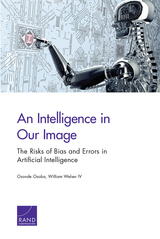

This textbook introduces students to the critical role of the US intelligence community within the wider national security decision-making and political process. Intelligence in the National Security Enterprise defines what intelligence is and what intelligence agencies do, but the emphasis is on showing how intelligence serves the policymaker. Roger Z. George draws on his thirty-year CIA career and more than a decade of teaching at both the undergraduate and graduate level to reveal the real world of intelligence. Intelligence support is examined from a variety of perspectives to include providing strategic intelligence, warning, daily tactical support to policy actions as well as covert action. The book includes useful features for students and instructors such as excerpts and links to primary-source documents, suggestions for further reading, and a glossary.
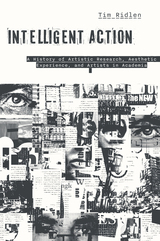



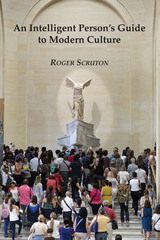
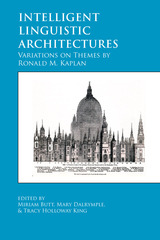
Ronald M. Kaplan has made foundational contributions to the development of computational linguistic research and linguistic theory, particularly within Lexical-Functional Grammar. Intelligent Linguistic Architectures, a tribute to Kaplan’s cutting-edge work, collects computational and theoretical linguistics papers in his research areas. From machine translation to grammar engineering, from formal issues to semantic theory, this ambitious volume represents the newest developments in linguistic scholarship.

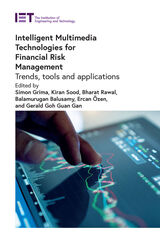
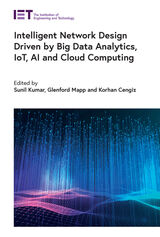

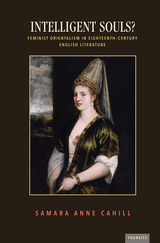
Published by Bucknell University Press. Distributed worldwide by Rutgers University Press.
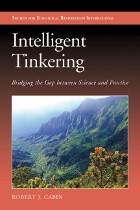
Interweaving entertaining narratives of his own on-the-ground experiences as a practicing restorationist with reflections about his scientific training and background, Cabin explores the relationship between science and practice in ecological restoration. He observes that because restoration can be complex and value-driven, its implementation often turns out to be as much interdisciplinary art as hard science.
One approach he advocates is what he calls "intelligent tinkering," after the work of Aldo Leopold. In this model, practitioners employ the same kind of careful but informal trial-and-error strategy followed by such groups as indigenous peoples and hobbyist mechanics. Cabin illustrates the power of intelligent tinkering using examples from his own work and other restoration projects.
The gap between science and practice is not unique to ecological restoration; it is a widespread problem across all fields of applied science. Written in a clear and engaging style, Intelligent Tinkering offers an insightful look at the underlying causes of the problem, along with invaluable suggestions for addressing it.
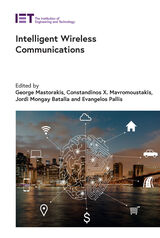
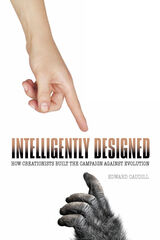
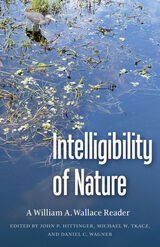
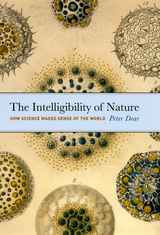
In The Intelligibility of Nature, Peter Dear considers how science as such has evolved and how it has marshaled itself to make sense of the world. His intellectual journey begins with a crucial observation: that the enterprise of science is, and has been, directed toward two distinct but frequently conflated ends—doing and knowing. The ancient Greeks developed this distinction of value between craft on the one hand and understanding on the other, and according to Dear, that distinction has survived to shape attitudes toward science ever since.
Teasing out this tension between doing and knowing during key episodes in the history of science—mechanical philosophy and Newtonian gravitation, elective affinities and the chemical revolution, enlightened natural history and taxonomy, evolutionary biology, the dynamical theory of electromagnetism, and quantum theory—Dear reveals how the two principles became formalized into a single enterprise, science, that would be carried out by a new kind of person, the scientist.
Finely nuanced and elegantly conceived, The Intelligibility of Nature will be essential reading for aficionados and historians of science alike.

Using economic models and empirical analysis, this volume examines a wide range of agricultural and biofuel policy issues and their effects on American agricultural and related agrarian insurance markets. Beginning with a look at the distribution of funds by insurance programs—created to support farmers but often benefiting crop processors instead—the book then examines the demand for biofuel and the effects of biofuel policies on agricultural price uncertainty. Also discussed are genetically engineered crops, which are assuming an increasingly important role in arbitrating tensions between energy production, environmental protection, and the global food supply. Other contributions discuss the major effects of genetic engineering on worldwide food markets. By addressing some of the most challenging topics at the intersection of agriculture and biotechnology, this volume informs crucial debates.

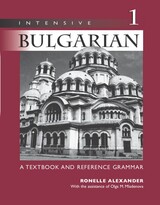
This is the first comprehensive textbook teaching English-speakers to read, write, and speak contemporary Bulgarian. The text is designed to be adaptable for students of varying skill levels and can be taught at a gradual or intensive pace. It is also a much-needed reference grammar of Bulgarian, incorporating the latest research and theories on Bulgarian grammar in accessible layman’s language.
Volume 1 introduces the basic elements of Bulgarian grammar and contains Lessons 1–15, a Bulgarian-English glossary, an English-Bulgarian glossary for beginners, and an appendix of verbal forms. Like many popular language textbooks, the dialogues in Intensive Bulgarian form a continuing dramatic narrative that gradually introduces students to both language and culture. Throughout the text, Bulgarian constructions and phrases are compared with English ones to clarify grammar and idioms.
Lessons include:
o dialogues and sample sentences
o exercises and translation sentences
o basic and supplemental grammar sections
o reading selections
o a glossary for the lesson
o cultural notes.
Together, Volumes 1 and 2 of Intensive Bulgarian provide all the materials necessary for teachers and students to learn lively, modern colloquial Bulgarian, to become familiar with Bulgarian cultural life, and to thoroughly understand Bulgarian grammar. Slavic scholars will also find in Volume 2 both a thorough presentation of the Bulgarian verb system, as traditionally conceived, and a new analysis of this system.
![front cover of Intensive Bulgarian 1 Audio Supplement [SPOKEN-WORD MP3]](https://www.bibliovault.org/thumbs/978-0-299-25035-5-thumb.jpg)
This audio MP3 is designed to supplement Ronelle Alexander’s Intensive Bulgarian, a two-volume textbook set that teaches students lively, modern colloquial Bulgarian, familiarizes them with Bulgarian cultural life, and thoroughly explains Bulgarian grammar. Intensive Bulgarian 1 Audio Supplement corresponds to Intensive Bulgarian 1 and Lessons 1–15, which introduce the basic elements of Bulgarian grammar. The audio tracks, spoken by native Bulgarians, present the dialogues for all lessons and supplementary materials for most lessons. Each track is introduced by a brief selection of authentic Bulgarian folk music. Each of the four items—the two volumes of the book and the two MP3 sets—is sold separately.
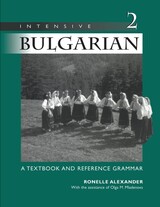
This is the first comprehensive textbook teaching English-speakers to read, write, and speak contemporary Bulgarian. The text is designed to be adaptable for students of varying skill levels and can be taught at a gradual or intensive pace. It is also a much-needed reference grammar of Bulgarian, incorporating the latest research and theories on Bulgarian grammar in accessible layman’s language.
Volume 2 contains Lessons 16-30 and introduces more complex points of grammar and syntax than Volume 1. It also includes a cumulative Bulgarian-English glossary covering both volumes. Like many popular language textbooks, the dialogues in Intensive Bulgarian form a continuing dramatic narrative that gradually introduces students to both language and culture. Throughout the text, Bulgarian constructions and phrases are compared with English ones to clarify grammar and idioms.
Lessons include:
o dialogues and sample sentences
o exercises and translation sentences
o basic and supplemental grammar sections
o reading selections
o a glossary for the lesson
o cultural notes.
Together, Volumes 1 and 2 of Intensive Bulgarian provide all the materials necessary for teachers and students to learn lively, modern colloquial Bulgarian, to become familiar with Bulgarian cultural life, and to thoroughly understand Bulgarian grammar. Slavic scholars will also find in Volume 2 both a thorough presentation of the Bulgarian verb system, as traditionally conceived, and a new analysis of this system.
![front cover of Intensive Bulgarian 2 Audio Supplement [SPOKEN-WORD MP3]](https://www.bibliovault.org/thumbs/978-0-299-25045-4-thumb.jpg)
This audio MP3 is designed to supplement Ronelle Alexander’s Intensive Bulgarian, a two-volume textbook set that teaches students lively, modern colloquial Bulgarian, familiarizes them with Bulgarian cultural life, and thoroughly explains Bulgarian grammar. Intensive Bulgarian 2 Audio Supplement corresponds to Intensive Bulgarian 2 and Lessons 16–30, which illustrate more complex issues of grammar and syntax. The audio tracks, spoken by native Bulgarians, present the dialogues for all lessons as well as two literary selections. Each track is introduced by a brief selection of authentic Bulgarian folk music. Each of the four items—the two volumes of the book and the two MP3 sets—is sold separately.
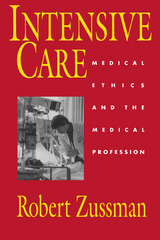
His book is a portrait of the way careful planning is undermined by the unpredictability of illness and the persistence of self-interest, by high principle and curious compromise.

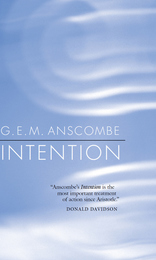
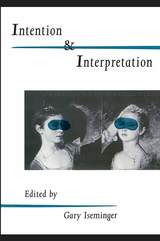
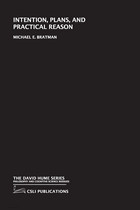

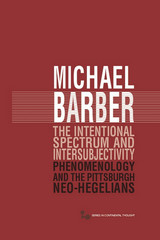
World-renowned analytic philosophers John McDowell and Robert Brandom, dubbed “Pittsburgh Neo-Hegelians,” recently engaged in an intriguing debate about perception. In The Intentional Spectrum and Intersubjectivity Michael D. Barber is the first to bring phenomenology to bear not just on the perspectives of McDowell or Brandom alone, but on their intersection. He argues that McDowell accounts better for the intelligibility of empirical content by defending holistically functioning, reflectively distinguishable sensory and intellectual intentional structures. He reconstructs dimensions implicit in the perception debate, favoring Brandom on knowledge’s intersubjective features that converge with the ethical characteristics of intersubjectivity Emmanuel Levinas illuminates.
Phenomenology becomes the third partner in this debate between two analytic philosophers, critically mediating their discussion by unfolding the systematic interconnectionamong perception, intersubjectivity, metaphilosophy, and ethics.
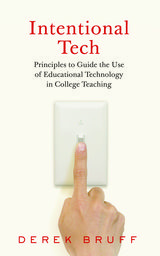
Chalkboards and projectors are familiar tools for most college faculty, but when new technologies become available, instructors aren’t always sure how to integrate them into their teaching in meaningful ways. For faculty interested in supporting student learning, determining what’s possible and what’s useful can be challenging in the changing landscape of technology.
Arguing that teaching and learning goals should drive instructors’ technology use, not the other way around, Intentional Tech explores seven research-based principles for matching technology to pedagogy. Through stories of instructors who creatively and effectively use educational technology, author Derek Bruff approaches technology not by asking “How to?” but by posing a more fundamental question: “Why?”
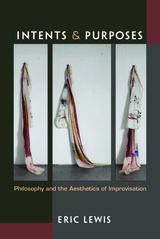
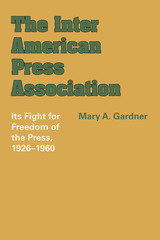
The Inter American Press Association (IAPA) has been a pioneer in the concept of an inter-American professional, independent, and self-sufficient pressure group that acts on its own initiative and subsists on its own resources. This study first traces the development of IAPA from the initial meeting in 1926 through the mid-1940’s, when a small group of dedicated Latin American and United States journalists began the fight to wrest the IAPA from the control of government lackeys and Communist agents. Previously scarce accounts of the early annual meetings, often noisy and disorganized and sometimes violent, give the reader an insight into the problems and animosities faced by the democratically oriented members.
Mary A. Gardner then describes a reorganization in 1950, after which IAPA actively fought for the freedom of newspaper workers tyrannized by Latin American dictators, such as Argentina’s Perón, Colombia’s Rojas Pinilla, Cuba’s Batista, and the Dominican Republic’s Trujillo. Even while IAPA was fighting for freedom of the press it began several services for its member newspapers: It set up a circulation auditing service, created a scholarship fund, undertook a newsprint study, and established a technical center. It also began the administration of the Mergenthaler Awards—prizes awarded yearly to outstanding Latin American journalists.
Gardner also analyzes the merits of IAPA, basing her conclusions on data obtained from her own observations, from letters written by others long associated with operations of the organization, and from interviews with Latin American and North American journalists. She concludes that IAPA apparently surmounted the barriers of nationalism, of cultural and political differences, and of personal prejudices, thus succeeding in its attempt to unite its members in the fight for freedom of the press and for the propagation of democracy in the hemisphere.

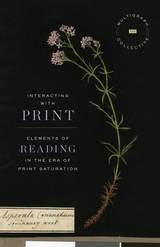
Each entry builds on its term in order to resituate print and book history within a broader media ecology throughout the eighteenth and nineteenth centuries. The central theme is interactivity, in three senses: people interacting with print; print interacting with the non-print media that it has long been thought, erroneously, to have displaced; and people interacting with each other through print. The resulting book will introduce new energy to the field of print studies and lead to considerable new avenues of investigation.
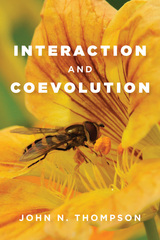
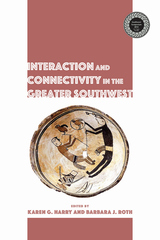
The book observes social interactions’ role in the diffusion of ideas and material culture; the way different social units, especially households, interacted within and between communities; and the importance of interaction and interconnectivity in understanding the archaeology of the Southwest’s northern periphery. Chapters demonstrate a movement away from strictly economic-driven models of social connectivity and interaction and illustrate that members of social groups lived in dynamic situations that did not always have clear-cut and unwavering boundaries. Social connectivity and interaction were often fluid, changing over time.
Interaction and Connectivity in the Greater Southwest is an impressive collection of established and up-and-coming Southwestern archaeologists collaborating to strengthen the theoretical underpinnings of the discipline. It will be of interest to professional and academic archaeologists, as well as researchers with interests in diffusion, identity, cultural transmission, borders, large-scale interaction, or social organization.
Contributors:
Richard V. N. Ahlstrom, James R. Allison, Jean H. Ballagh, Catherine M. Cameron, Richard Ciolek-Torello, John G. Douglass, Suzanne L. Eckert, Hayward H. Franklin, Patricia A. Gilman, Dennis A. Gilpin, William M. Graves, Kelley A. Hays-Gilpin, Lindsay D. Johansson, Eric Eugene Klucas, Phillip O. Leckman, Myles R. Miller, Barbara J. Mills, Matthew A. Peeples, David A. Phillips Jr., Katie Richards, Heidi Roberts, Thomas R. Rocek, Tammy Stone, Richard K. Talbot, Marc Thompson, David T. Unruh, John A. Ware, Kristina C. Wyckoff
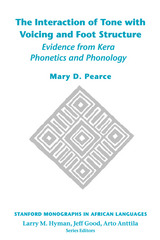
This book investigates the topics of tone, vowel harmony, and metrical structure, with special reference to Kera, a Chadic language spoken in Chad and Cameroon. Kera is a tone language where a change in the pitch of the word can make a difference to its meaning. Drawing on a decade of experience living and working with the Kera, Mary D. Pearce looks at both the phonetics and phonology to examine how tone interacts with the vowel quality and rhythm of the language. The implications arising from this research are relevant for phonologists and Africanists far beyond the boundaries of Chad and should be useful to anyone working on languages with interesting tonal and rhythmic properties.

Poorman brings together ethics and pastoral practice in an interactional model that captures the distinctive character of Christian pastoral counseling. His work is especially important in a culture that often confuses pastoral counseling with therapy. It also challenges traditional notions which portray the pastoral minister as an instructor who dispenses the church's moral teaching. Poorman distinguishes the pastoral task from that of therapist or teacher, while drawing on the best resources of contemporary psychology and moral development theories. he brings moral theology into lively conversation with pastoral experience; at the same time, his clear presentation brings a critical method of moral discernment to Christian ministry which is rooted in faith and the wisdom of the community.

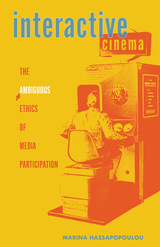
Connecting interactive cinema to media ethics and global citizenship
Interactive Cinema explores various cinematic practices that work to transform what is often seen as a primarily receptive activity into a participatory, multimedia experience. Surveying a multitude of unorthodox approaches throughout the history of motion pictures, Marina Hassapopoulou offers insight into a range of largely ephemeral and site-specific projects that consciously assimilate viewers into their production.
Analyzing examples of early cinema, Hollywood B movies, museum and gallery installations, virtual-reality experiments, and experimental web-based works, Hassapopoulou travels across numerous platforms, highlighting a diverse array of strategies that attempt to unsettle the allegedly passive spectatorship of traditional cinema. Through an exploration of these radically inventive approaches to the medium, many of which emerged out of sociopolitical crises and periods of historical transition, she works to expand notions of interactivity by considering it in both technological and phenomenological terms.
Deliberately revising and expanding Eurocentric scholarship to propose a much broader, transnational scope, the book emphasizes the ethical dimensions of interactive media and their links to larger considerations around community building, citizenship, and democracy. By combining cutting-edge theory with updated conventional film studies methodologies, Interactive Cinema presses at the conceptual limits of cinema and offers an essential road map to the rapidly evolving landscape of contemporary media.
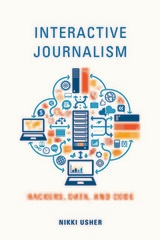
Nikki Usher brings together a comprehensive portrait of nothing less than a new journalistic identity. Usher provides a history of the impact of digital technology on reporting, photojournalism, graphics, and other disciplines that define interactive journalism. Her eyewitness study of the field's evolution and accomplishments ranges from the interactive creation of Al Jazeera English to the celebrated data desk at the Guardian to the New York Times' Pulitzer-endowed efforts in the new field. What emerges is an illuminating, richly reported profile of the people coding a revolution that may reverse the decline and fall of traditional journalism.
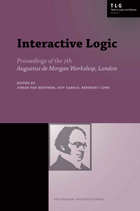
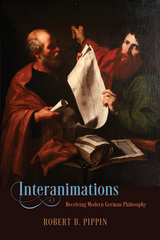
After opening up his territory with an initial discussion of contemporary revisionist readings of Kant’s moral theory, Pippin sets his sights on his main objects of interest: Hegel and Nietzsche. Through them, however, he offers what few others could: an astonishing synthesis of an immense and diverse set of thinkers and traditions. Deploying an almost dialogical, conversational approach, he pursues patterns of thought that both shape and, importantly, connect the major traditions: neo-Aristotelian, analytic, continental, and postmodern, bringing the likes of Heidegger, Honneth, MacIntyre, McDowell, Brandom, Strauss, Williams, and Žižek—not to mention Hegel and Nietzsche— into the same philosophical conversation.
By means of these case studies, Pippin mounts an impressive argument about a relatively under discussed issue in professional philosophy—the bearing of work in the history of philosophy on philosophy itself—and thereby he argues for the controversial thesis that no strict separation between the domains is defensible.

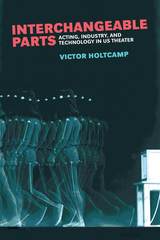
Victor Holtcamp explores the invocations of scientific and industrial rhetoric and philosophy in the founding of the first schools of acting, and echoes of that rhetoric in playwriting, production, and the cinema, as Hollywood in particular embraced this industrially infected model of acting. In their divergent approaches to performance, the major US acting teachers (Lee Strasberg, Stella Adler, and Sanford Meisner) demonstrated strong rhetorical affinities for the language of industry, illustrating the pervasive presence of these industrial roots. The book narrates the story of how actors learned to learn to act, and what that process, for both stage and screen, owed to the interchangeable parts and mass production revolutions.
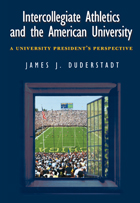
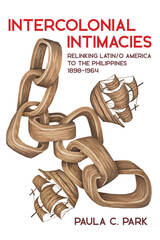
As a nation, the Philippines has a colonial history with both Spain and the United States. Its links to the Americas are longstanding and complex. Intercolonial Intimacies interrogates the legacy of the Spanish Empire and the cultural hegemony of the United States by analyzing the work of twentieth-century Filipino and Latin/o American writers and diplomats who often read one other and imagined themselves as kin. The relationships between the Philippines and the former colonies of the Spanish Empire in the Americas were strengthened throughout the twentieth century by the consolidation of a discourse of shared, even familiar, identity. This distinct inherited intercolonial bond was already disengaged from their former colonizer and further used to defy new forms of colonialism. By examining the parallels and points of contact between these Filipino and Latin American writers, Paula C. Park elaborates on the “intercolonial intimacies” that shape a transpacific understanding of coloniality and latinidad.
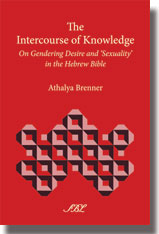
Now in paperback!
This groundbreaking book, which builds on the author's earlier work in On Gendering Texts, studies how, by what means, and to what extent human love, desire and sex, and possibly even "sexuality"; are gendered in the Hebrew Bible. The investigation looks into the construction of male and female bodies in language and ideologies; the praxis and ideology of sex, procreation, and contraception; deviation from socio-sexual boundaries (e.g. incest, rape, adultery, homosexuality, prostitution); eroticism and "pornoprophetics."
Features:
- Paperback format of an essential Brill monograph
- A classification and gendering of the linguistic and semantic data
- Discussion of wider sociological and theological implications

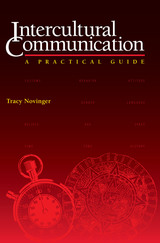
Successfully communicating with people from another culture requires learning more than just their language. While fumbling a word or phrase may cause embarrassment, breaking the unspoken cultural rules that govern personal interactions can spell disaster for businesspeople, travelers, and indeed anyone who communicates across cultural boundaries. To help you avoid such damaging gaffes, Tracy Novinger has compiled this authoritative, practical guide for deciphering and following "the rules" that govern cultures, demonstrating how these rules apply to the communication issues that exist between the United States and Mexico.
Novinger begins by explaining how a major proportion of communication within a culture occurs nonverbally through behavior and manners, shared attitudes, common expectations, and so on. Then, using real-life examples and anecdotes, she pinpoints the commonly occurring obstacles to communication that can arise when cultures differ in their communication techniques. She shows how these obstacles come into play in contacts between the U.S. and Mexico and demonstrates that mastering the unspoken rules of Mexican culture is a key to cementing business and social relationships. Novinger concludes with nine effective, reliable principles for successfully communicating across cultures.
READERS
Browse our collection.
PUBLISHERS
See BiblioVault's publisher services.
STUDENT SERVICES
Files for college accessibility offices.
UChicago Accessibility Resources
home | accessibility | search | about | contact us
BiblioVault ® 2001 - 2024
The University of Chicago Press









